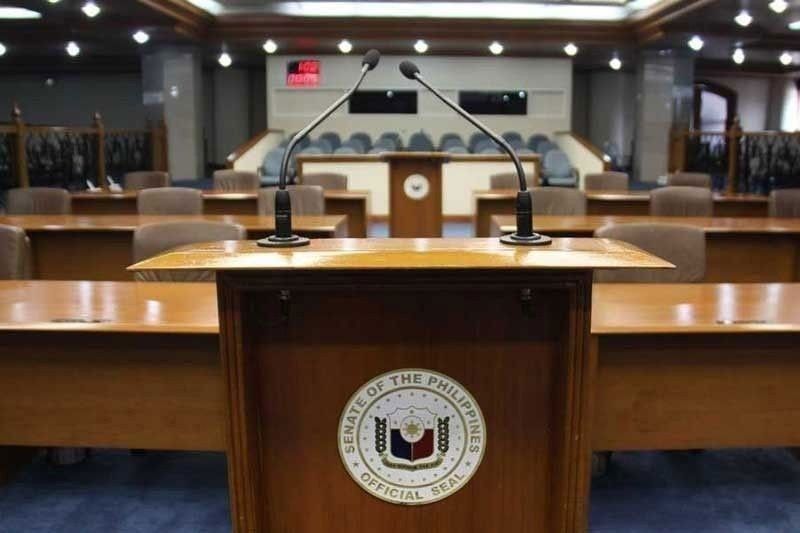Senate resolutions call for suspension of new travel requirements

MANILA, Philippines — The Senate adopted separate resolutions effectively blocking the Inter-Agency Council Against Trafficking (IACAT)’s new travel guidelines on departure formalities for international-bound Filipino passengers.
One of these allows Senate President Juan Miguel Zubiri to file, on behalf of the Senate, a petition before the Supreme Court (SC) to issue a temporary restraining order if necessary to lift the travel restraint deemed unconstitutional.
“It is the right of every Filipino to travel. And truth be told, we want more Filipinos to travel, domestically and internationally,” said Zubiri, who noted that the Bureau of Immigration (BI) has offloaded 32,404 Filipinos.
Senate Minority Leader Aquilino Pimentel III introduced a resolution seeking to suspend implementation of the 2023 revised IACAT guidelines on departure formalities for Filipino passengers on flights abroad.
Pimentel said the resolution would grant the Senate President the authority to file the necessary petition before the SC to put a stop to the regulation if circumstances warrant such action.
“It’s, on its face, unconstitutional. Imagine a Filipino cannot travel in the absence of a consularized affidavit of support from a relative,” Pimentel said, referring to the revised guidelines set to take effect on Sept. 3. The chamber adopted the resolution.
The Department of Justice (DOJ) has suspended the implementation of the revised guidelines on departure formalities following concerns by lawmakers and travelers over the supposed overreach on the right to travel.
In a statement, the DOJ and IACAT acknowledged the apprehensions on the revised guidelines, but maintained that these were meant to strike a balance between national security and the facilitation of smooth and efficient travel.
On Wednesday, the senators agreed to pass the two resolutions after Zubiri delivered a privilege speech denouncing the new travel guidelines, which require international-bound Filipino passengers to present additional documents for self-funded travel.
The requirements include a confirmed round-trip ticket, proof of accommodation, financial capacity, purpose of travel, proof of employment and other documents.
For sponsored travel, the agency requires original birth or marriage certificates, confirmed round-trip tickets and notarized copies of letter from the sponsor, valid work visa/permit, etc.
Zubiri said the guidelines will surely burden Filipino travelers.
Pimentel agreed with the Senate President. “We can help come up with ideas on how to combat human trafficking, but not to the extent that it violates the Constitution,” he said.
In his speech, Zubiri said: “Looking at the IACAT’s new set of requirements… we are left wondering, Is all of this absolutely necessary?”
“We are one with IACAT in finding ways to protect our people from being exploited and finding themselves abroad with no proper employment and no means of coming back home,” he said. “But there has to be a way to protect our people without also hampering their right to travel.”
He noted that while the BI was so strict on Filipinos traveling abroad, immigration officers were lenient on Philippine offshore and gaming operator workers.
Poe, chair of the Senate committee on public services, asked concerned government agencies to temporarily put off the implementation of the new travel rules amid concerns raised by the public.
“The lingering doubts and questions about the new rules must not be swept under the rug,” Poe said. “Authorities must make traveling through our airports secure against human traffickers, but without being too complicated.”
Senate Majority Leader Joel Villanueva, during Wednesday’s plenary session, said there is a need to review the new set of guidelines. He said one traveler had to rebook a ticket costing P27,000 after missing her flight due to lengthy BI interview.
“There is something wrong with the process and it is only right that we review our programs to ensure that we are truly upholding our sworn duty to protect our people,” Villanueva said.
He also cited data from the BI showing that last year, out of the 32,404 Filipinos whose departure was deferred, only 472 or 1.46 percent were found to be victims of human trafficking. — Sheila Crisostomo, Emmanuel Tupas
- Latest
- Trending































